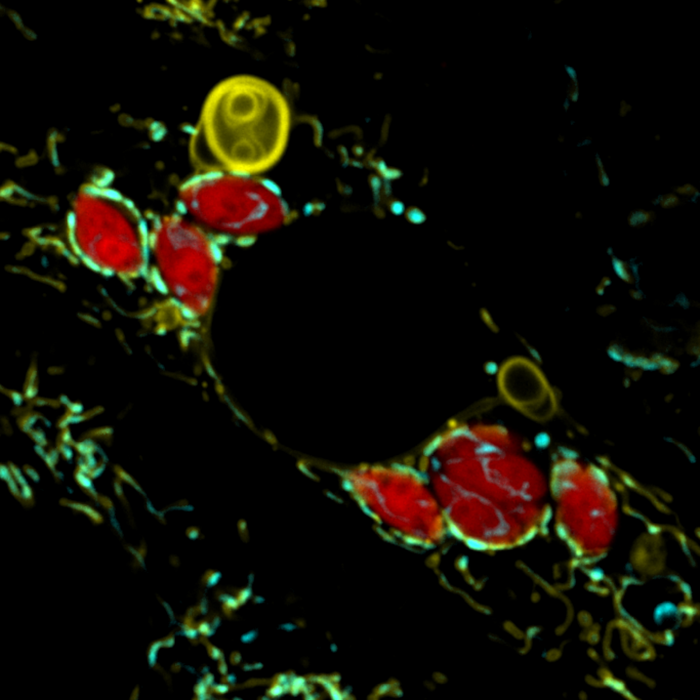Mitochondria are known as energy suppliers for our cells, but they also play an important role in the defense against pathogens. They can initiate immune responses, and deprive pathogens of the nutrients they need to grow. A research team led by Lena Pernas of the Max Planck Institute for Biology of Ageing in Cologne, Germany, has now shown that pathogens can turn off mitochondrial defense mechanisms by hijacking a normal cellular response to stress.

Credit: Xianhe Li/ Max Planck Institute for Biology of Ageing
Mitochondria are known as energy suppliers for our cells, but they also play an important role in the defense against pathogens. They can initiate immune responses, and deprive pathogens of the nutrients they need to grow. A research team led by Lena Pernas of the Max Planck Institute for Biology of Ageing in Cologne, Germany, has now shown that pathogens can turn off mitochondrial defense mechanisms by hijacking a normal cellular response to stress.
To survive, pathogens need to acquire nutrients from their host and counter host defenses. One such defense comes from host mitochondria, which can deprive them of nutrients they need and thus restrict their growth. “We wanted to know how else mitochondrial behaviour changes when mitochondria and pathogens meet in cells. Because the outer membrane of these organelles is the first point of contact with the pathogens, we took a closer look at it,” explains Lena Pernas, research group leader at the Max Planck Institute for Biology of Ageing.
Mitochondria shed their ´skin`
The researchers infected cells with the human parasite Toxoplasma gondii and observed live under the microscope what happens to the outer compartment of mitochondria. “We saw that mitochondria in contact with the parasite started shedding large structures from their outer membrane. This was so puzzling to us. Why would mitochondria shed what is essentially the gateway between them and the rest of the cell?” says Xianhe Li, first author of the study.
Hostile takeover
But how does the parasite get the mitochondria to do it? The research team was able to show that the pathogen has a protein that functionally mimics a host mitochondrial protein. It binds to a receptor on the outer membrane of mitochondria, to gain access to the machinery that ensures proteins are transported inside the mitochondria. “In doing so, the parasite hijacks a normal host response to mitochondrial stress that, in the context of infection, effectively disarms the mitochondria” Pernas said. “Other researchers have shown that a SARS-CoV-2 virus protein also binds to this transport receptor. This suggests the receptor plays an important role in the host-pathogen interaction. But further investigation is needed to better understand its role during different infections.”
Lena Pernas is also a group leader at the CECAD Cluster of Excellence in Aging Research at the University of Cologne.
Journal
Science
Method of Research
Experimental study
Subject of Research
Cells
Article Title
Mitochondria shed their outer membrane in response to infection-induced stress
Article Publication Date
14-Jan-2022




